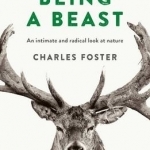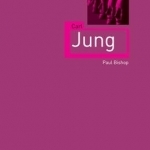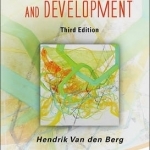
Fraternity: An Inside Look at a Year of College Boys Becoming Men
Book
Two real-life stories. One stunning twist. Meet Jake, a studious freshman weighing how far to go to...
Steph (468 KP) rated Beauty Sick: How the Cultural Obsession with Appearance Hurts Girls and Women in Books
Jul 9, 2018
The book is told through a mixture of psychology research and stories told by real women. The mix of facts and anecdotes was perfect. You got the knowledge and science behind beauty sickness. But you also heard the voices of women tell their own tales in a very human and relatable way.
What is absolutely terrifying and shows how beauty sick our culture really is, is that while reading this book, I often felt like I should be engaging in the negative behaviors that were discussed. For example, hearing about how people use special software to edit their photos before posting on social media made me consider doing that before posting my next photos!
But this book also changed the way I think of myself and my body in a positive way. I thought I knew about the negative effects of the media on body image, especially as a psychologist myself. I was unprepared for how little I actually knew, especially when it came to misconceptions about our bodies and how we treat them. I read the chapter on shame and started crying, because I related to so much of it. I didn't realize that I was trying to motivate myself to lose weight by shaming myself into feeling bad about my weight and what I was eating until I read this book. Beauty Sick has changed the way I think about myself and given me new strategies for cultivating a positive self-image and loving my body.
I loved that the section on what we can do about beauty sickness was so extensive. It really opened my eyes to how I think about and treat my body as well as what I can do differently to improve my self-image. I've always hated exercising. I never realized that the reason I hated it was probably because I always thought the point was to lose weight. Exercising felt like a punishment to me- something I had to do so I could shave off a few pounds. I never thought about viewing through a "look what I can do!" lens or to think about what I might have fun doing instead of what I *should* be doing.
I read this book ravenously- staying up late to read just one more chapter and sneaking pages in at work to devour its content. I needed to hear both how beauty sick our culture is and what I can do about it. I think every woman would personally benefit from reading this book. I hope its message becomes widespread and that we can make positive changes in our culture to decrease beauty sickness. In the meantime, we can make changes in our own lives and in the lives of the women we love by reading this book and applying it to ourselves and the people we love.
John Dexter has Borderline Personality Disorder, quite a special case indeed, and he's recently become infatuated with Carla, a young woman working at a local pub. Well, "infatuated" is too light a word; he's fallen head-over-heels in love with her, and upon first sight, no less. See, that's one of his main issues: he falls hard and fast, and when the inevitable happens, he just doesn't have the emotional capabilities to cope. So, this is just going to be another in a string of intense failings, right? Or will his many years of therapy actually come through for him this time?
Coming from a Psychology background, this book really hits the nail on the head. I was greatly appreciative that the author took the time to outline the different requirements for a diagnosis of BPD and how John fits within each one. It's an interesting read from a fictional perspective, and it has its ups and definitely its downs, but the psychological aspect is spot-on, as well. The ways John chooses to cope with his failings, emotional downfalls, etc, are accurately depicted, from self-harm to drinking himself to oblivion, and while it's not something that everyone can identify with, it's made all the more easier to understand through the author's use of explanatory exposition and narration from John himself, discussing his diagnosis with the reader.
This is the first book I've read of this author, and I plan to add him to my list of those to seek out in the future.
5 stars

Awaken The Giant Within Meditation Book by Tony Robbins
Book and Lifestyle
App
NEW, Groundbreaking Audiobook Meditation App puts your learning of The Awaken the Giant Within into...

Being a Beast
Book
LONGLISTED FOR THE BAILLIE GIFFORD PRIZE 2016 Charles Foster wanted to know what it was like to be a...

Carl Jung
Book
Carl Gustav Jung (1875 - 1961), as well as being one of the pioneers of psychology, is one of the...

Keel's Simple Diary: v. 2
Book
This title is available in 6 delicious colors. In a world where products are out as soon as they're...

Mania and Marjorie Diehl-Armstrong: Inside the Mind of a Female Serial Killer
Book
Marjorie Diehl-Armstrong, as one judge described her, is "a coldly calculated criminal recidivist...

Economic Growth and Development
Book
This textbook covers the full range of topics and issues normally included in a course on economic...
Employee Training and Development
Book
This is the best selling title for this course. Companies that use innovative training and...
